Today we’re going to learn how to play ‘Follow Me’ by John Denver- this is an easy guitar lesson for beginners. We’re going to be using five chords for this song. Four of them are standard open songs and the fifth one could be a barre chord. We’ve got D, A7, G and Em, while the fifth chord is a Bm.
Chords of ‘Follow Me’ by John Denver
To start off we’ve got a folk style D chord. To play this chord, place your index finger on the third string second fret, middle finger on the first string second fret and the ring finger on the second string third fret. The D chord is played with the bass on the fourth string.
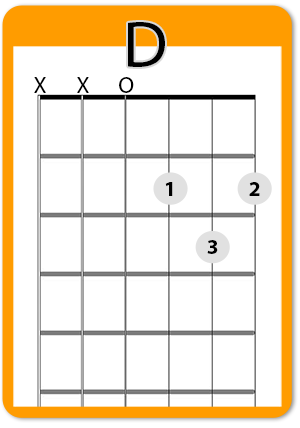
Then we have a G chord. For this chord, place your index on the fifth string second fret, middle finger on the sixth string third fret, and ring finger on the first string third fret. Alternatively, you could try a four-finger G chord. Here you just place the ring finger on the second string third fret and your pink right below it, on the first finger third fret (while keeping the index and middle finger in the same position as the basic open G chord, as described above).
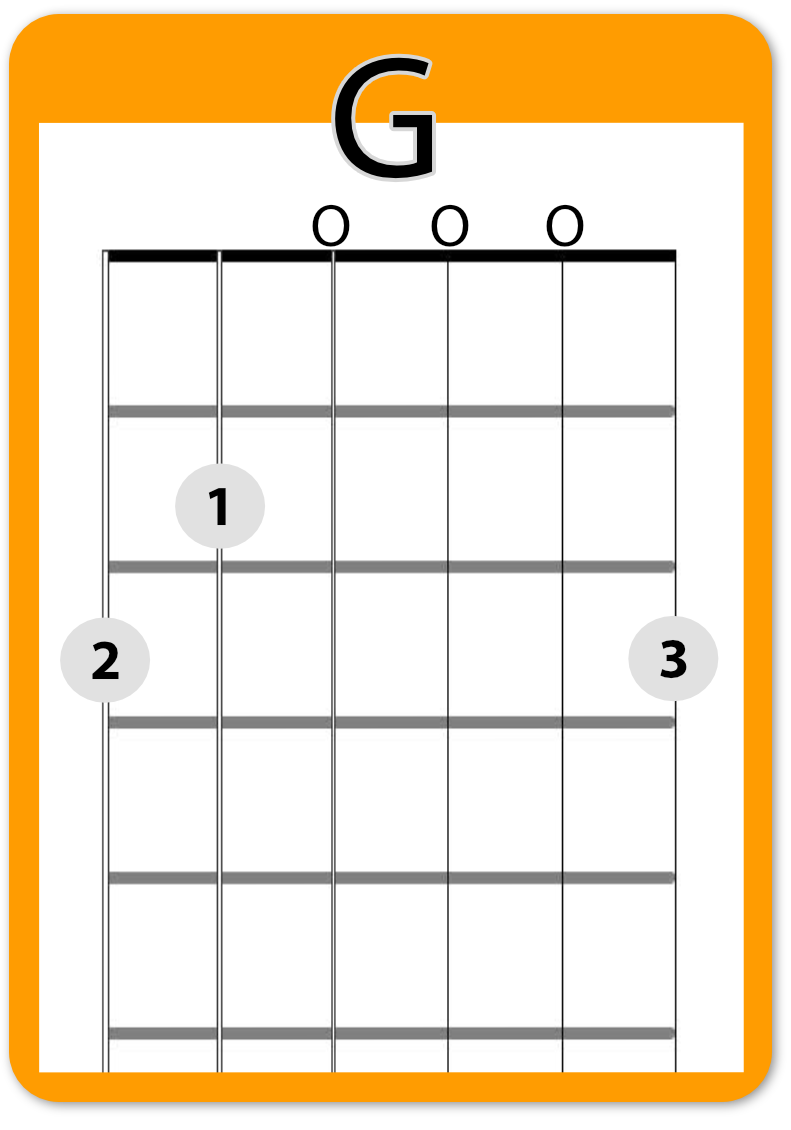
3-Finger G Chord
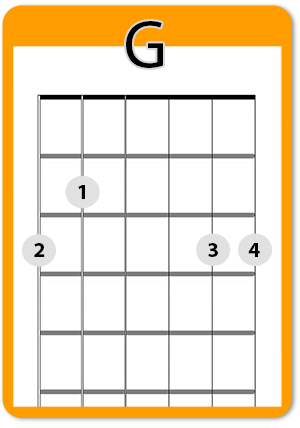
4-Finger G Chord
This is followed by an A7. I’ll finger this chord with my index finger on the fourth string second fret and the middle finger on the second string second fret, with the bass on the open 5th string. The A7 chord is often fingered with the middle finger on the fourth string and the ring finger on the second string instead. Choose whatever option feels more comfortable to you.
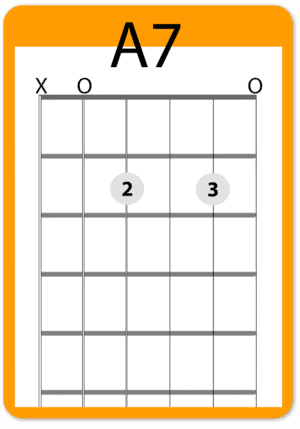
Then we have an Em chord. Here we place the middle finger on the fifth string second fret and the ring finger right below it, on the fourth string second fret. The bass for the Em chord is the open 6th string.
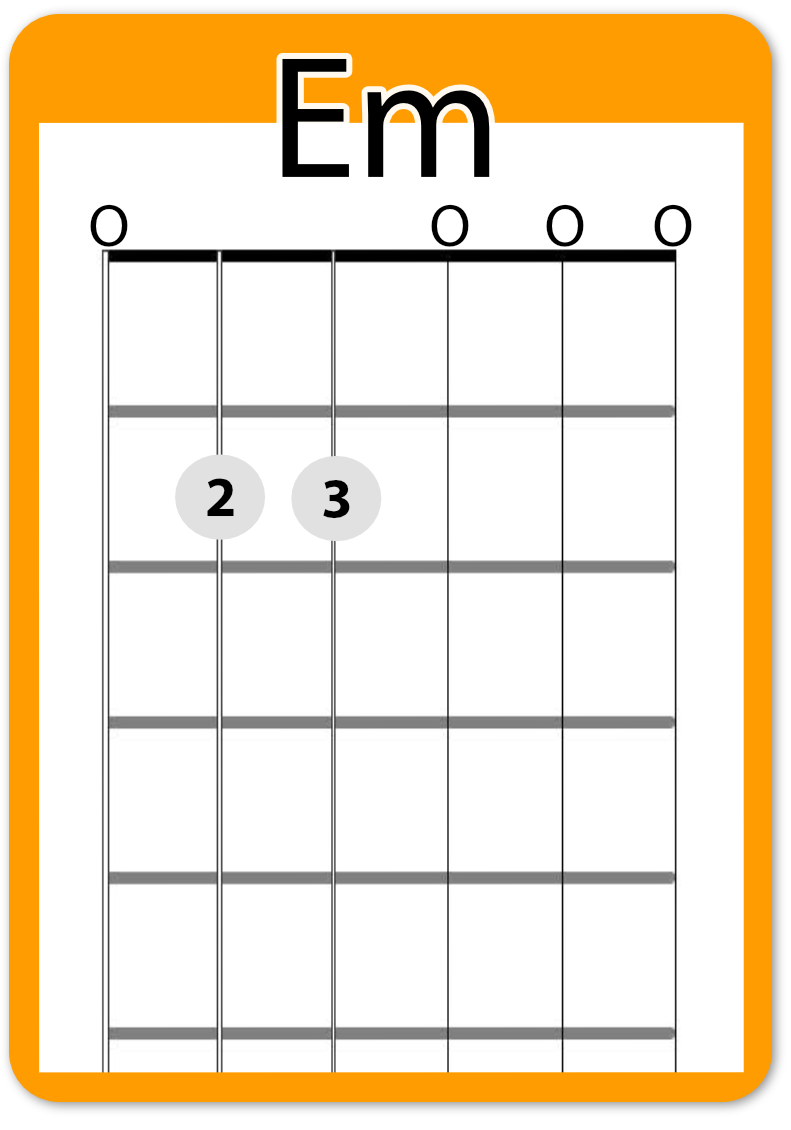
Bm chord
The fifth chord on Follow Me by John Denver is a Bm. This chord is often played as a bar chord on the second fret, with an A minor shape next to the barred index finger. In other words, place your index finger across all the strings on the second fret, making it a bar. Then place your middle finger on the second string third fret, ring finger on the fourth string fourth fret and pinky on the third string fourth fret.
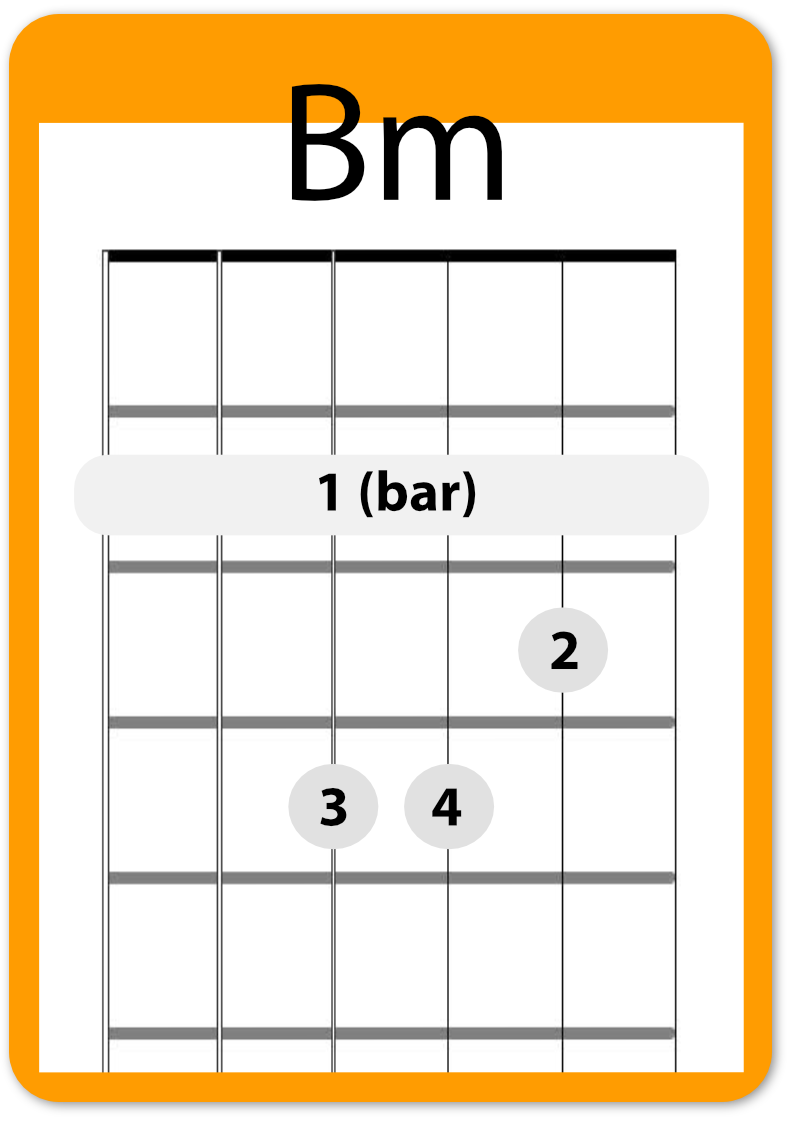
Keep in mind that is an A minor shape (not an A minor chord). It is called A minor shape because you can move it around the fretboard to create minor barre chords off of the fifth string.If you want to bypass the bar, you just take your index and place on the first string second fret, and you’d pluck it from the fourth string down. With this option, you do lose the bass note of Bm. Although this is a valid and easier option to a barre Bm, it is not as strong.
Intro and Chorus
Follow Me starts with the intro, which features the chords Bm, A7, D, D, G, Em, and A7. Feel free to use the Bm that you feel most comfortable with. Try that by just plucking the chord once when it changes, we’ll look at the strumming pattern later.We then move on to the chorus. Here the chords are D, G, D, G, D, G and A7. We do that twice in a row to cover the first two lines of the chorus. We then do the same pattern again, and at the end we do a faster A to a D to prepare us to go on to the verse.
Learning the First Verse
The first verse starts off with the chords D, A7, G, D, Bm, A7, G, and A7. Then it goes to G, D, G, D, G, Em G, and A7, A7. Each chord lasts a full bar or four beats, with the last A7 repeating. We then move on to the chorus.
Strum Pattern: From Simple to Complex
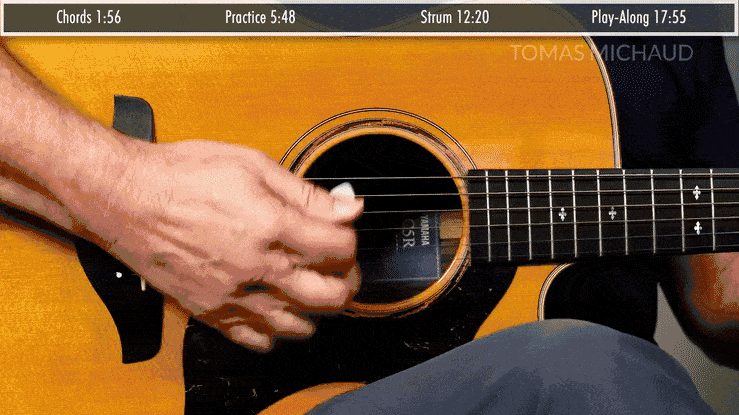
You can start off by strumming every beat with a downstroke. In other words, strum down every beat for every chord. This is a very simple way to play it, and lets you focus on the lyrics and form before you can move on to a more complex strum pattern.Moving to a more complex pattern, hit the bass on beats one and three and the top strings on beats two and four. Basically, you’d be alternating between the bass of the chord and the higher strings.It is important to know what the bass notes are for every chord. For instance, for the Bm, the bass note is on the fifth string if you’re playing it barred. If not, then the bass note is on the fourth string. For the D chord, the bass note is the open fourth string. For the G, the bass note is the sixth string, for A7 the bass note is the open fifth string. Next, for Em, the bass note is the open sixth string. Make sure you start nice and slow. Don’t worry too much if you catch other strings while aiming for the right bass note. Just make sure you’re aiming for the right string, and the rest will come with practice.
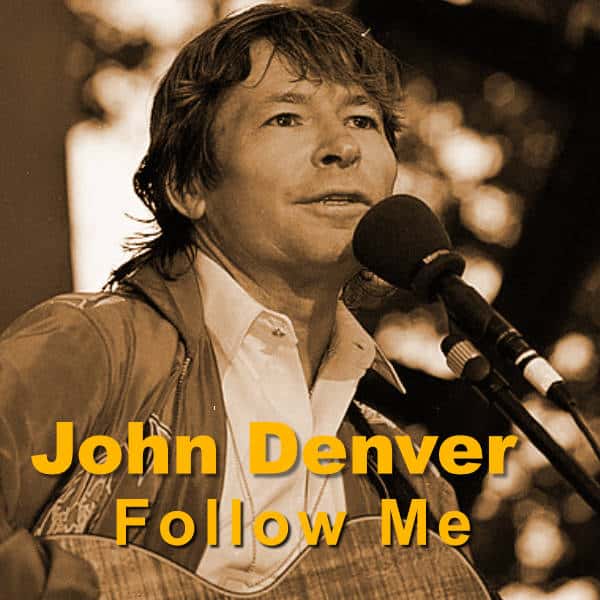
Conclusion
Follow Me by John Denver is a great song to work on your strumming pattern, chord switching and following a song form. It is a relatively simple song, so I’m sure you will be able to play it with some practice. The YouTube video features a play along that can be quite useful when practicing. Remember to go slow at first and have fun!
Course Content
You need to login or register to bookmark/favorite this content.